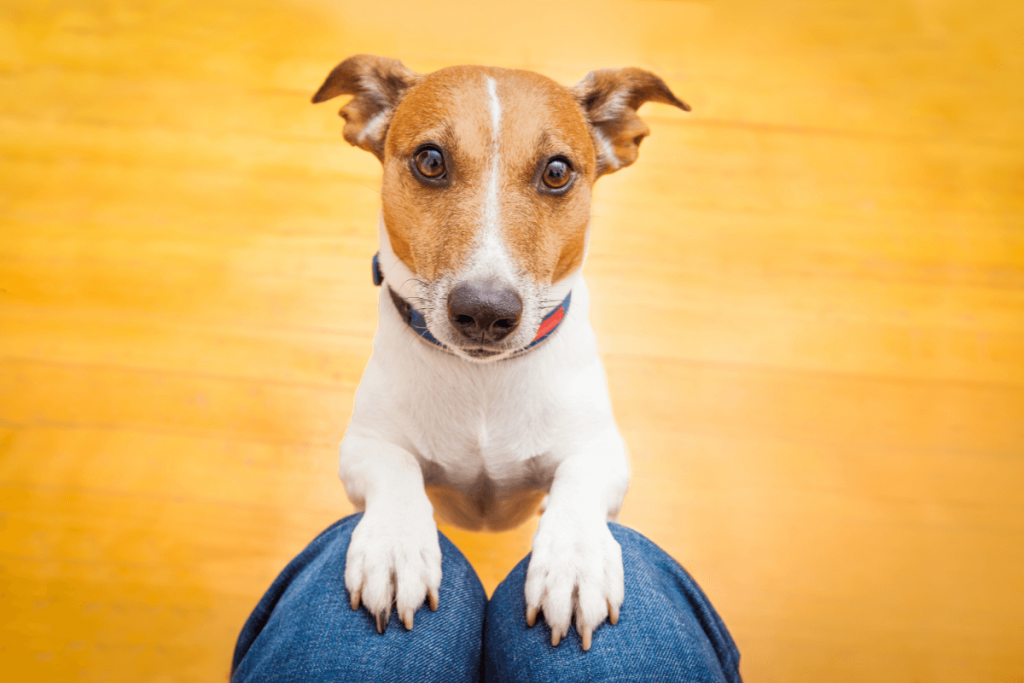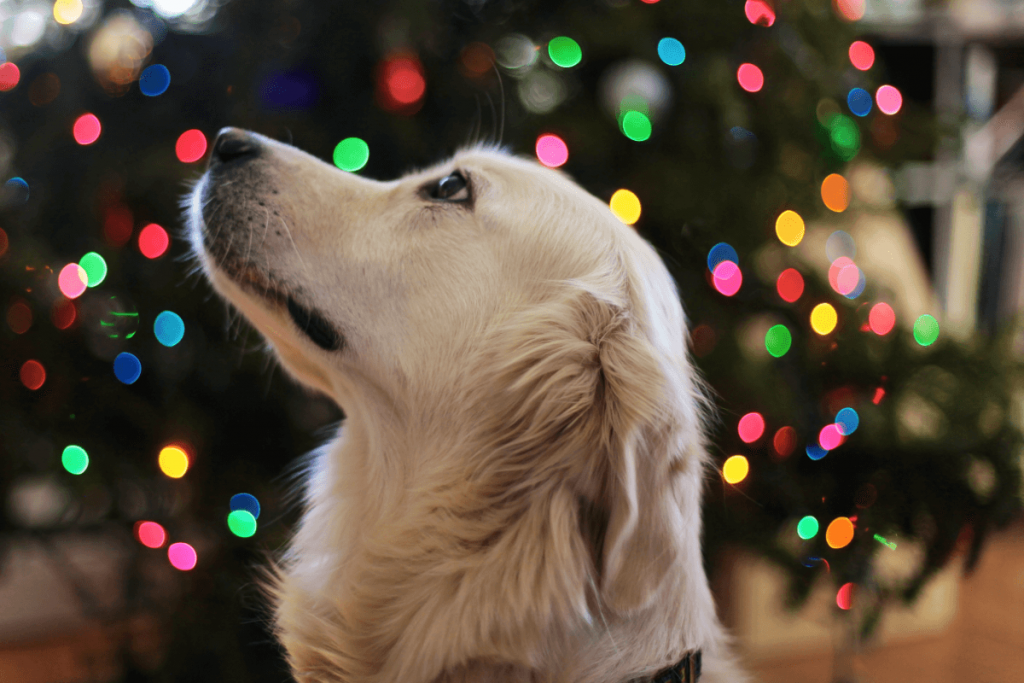For most of us, food plays an important part in Christmas celebrations. While you may enjoy indulging in lots of Christmas treats, there are a number of festive foods that you shouldn’t share with your dog.
Some festive food items can be harmful – or even toxic – for dogs so it’s important not to leave certain Christmas foods within reach or give them to your dog as a special treat.
We’ve listed some of the popular Christmas foods not to share with your dog – and a few they can enjoy too!
Chocolate
Chocolate is a big no-no for dogs and is one of the most common reasons people need to make an emergency visit to the vet over the Christmas break. Many dogs can find the smell and taste of chocolate quite irresistible, however, it can make your pet very ill.
Exactly how unwell they will get depends on the type and quantity eaten compared to their body weight but eating chocolate can prove fatal for some dogs without treatment. Symptoms of chocolate poisoning typically appear 6-12 hours after ingestion and can include vomiting, upset stomach, muscle twitching, drinking a lot and dribbling.
Candy canes and other lollies containing xylitol
Keep the candy canes out of reach, as the artificial sweetener in these irresistible treats will make your pup very sick. Lots of other lollies also contain xylitol, so make sure they are safely stored so your dog can’t get to them. Key symptoms of xylitol poisoning include vomiting, lethargy and wobbliness.
The cellophane wrappers on candy canes and other sweets can also prove hazardous and cause an intestinal blockage.
Macadamias and walnuts
Macadamias and walnuts are also toxic for dogs. Walnuts are hard for dogs to digest, and contain a toxin that can cause seizures. Macadamias can be highly toxic even in small doses, and can cause lethargy, weakness, tremors and vomiting.
Onions and garlic
While it’s unlikely that your pooch is going to seek out an onion or garlic to eat, many of our favourite accompaniments for a Christmas meal contain these two items (such as gravy and stuffing). Onions and garlic (fresh, cooked and in powdered form) can damage your dog’s red blood cells, which shows up as a range of symptoms including lethargy, weakness and pale gums.
Cooked bones
While raw bones are a great way to help naturally clean your dog’s teeth, cooked bones can be quite dangerous. When bones are cooked, they can splinter easily, which can damage your dog’s insides when eaten.
Christmas cake (plus grapes, raisins and sultanas)
Grapes, raisins and sultanas (or food containing these fruits such as Christmas cake) can make some dogs quite ill. The reason for this is unknown, however these items can damage their kidneys.
Christmas foods you CAN share with your dog

There is still a wide range of festive foods you can share with your dog and make them feel included in your celebrations. These include:
- Small amounts of lean meat (such as ham, chicken or turkey)
- Salmon
- Pumpkin or sweet potato
- Green beans or broccoli
- Carrots (cooked or raw)
- Fruit such as apples, blueberries or watermelon
- Special dog treats
What to do if your dog eats something they shouldn’t have
If you’re concerned that your dog has eaten something they shouldn’t have, then it’s important to contact a vet. They can advise if you need to come in straight away or may advise the symptoms to look out for. If your pet is unwell or displaying any unusual behaviour, it is important to take them straight to a vet for an examination and treatment.
Cameron Veterinary Services’ opening hours over the Christmas break
This year our Gawler East small animal vet clinic will be closed from 1pm Saturday 23rd of December, before reopening at 8am Tuesday 2nd of January 2024.
If you have any health concerns about your pet over the Christmas period while our clinic is closed, please contact the Roseworthy Veterinary Hospital or the Small Animal Specialist Hospital in Adelaide. Both of these vet hospitals are open 24/7.



